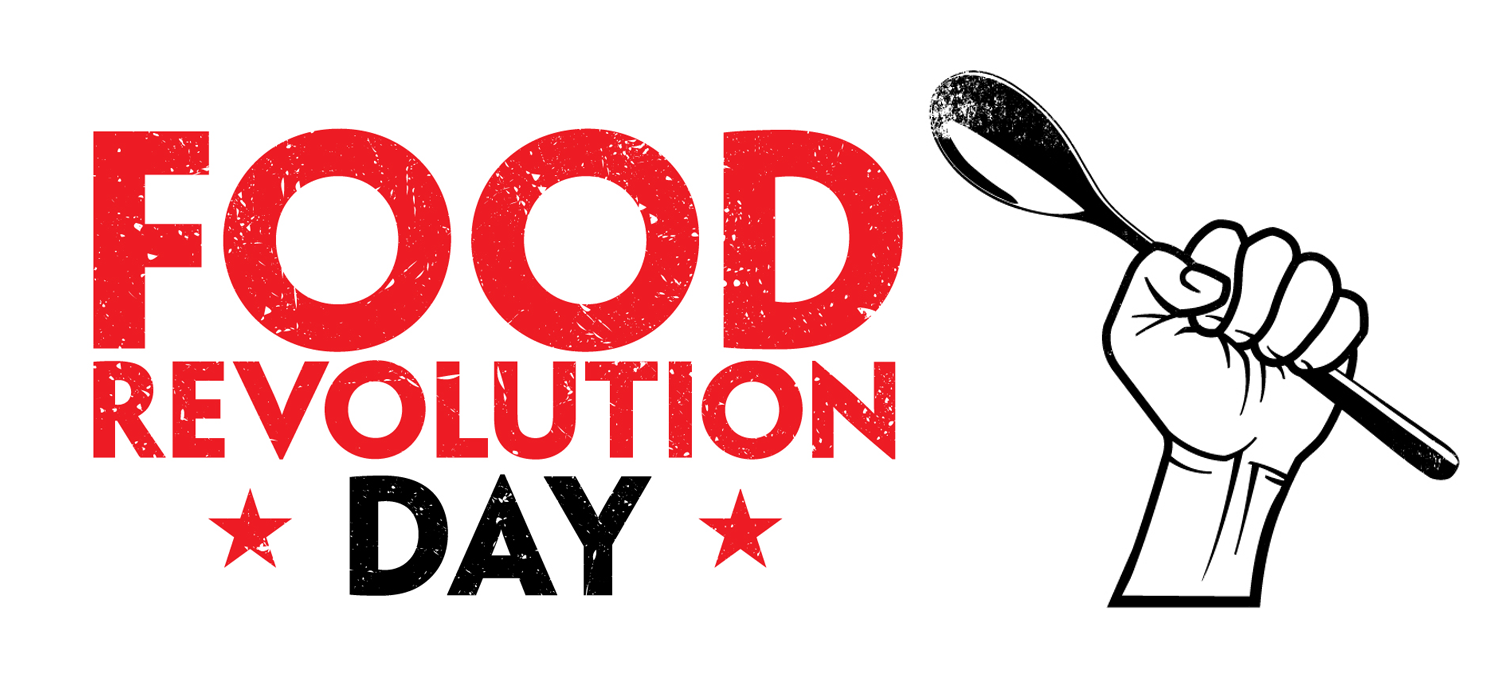We eat too much. We eat the wrong things. According to Jamie Oliver, “Obesity is one of the three biggest social burdens created by human beings alongside smoking, and armed violence, war, and terrorism. Obesity costs $2 trillion dollars globally each year.” #FoodRevolutionDay is May 15th, a day Oliver wants us to join him in kicking off a campaign to change the way we eat at home, at school, and out. He’s got some highly talented help from Ed Sheeran, Hugh Jackman and Paul McCartney with this music video.
We’ve been buying into the corporate model since the advent of industrialism. Crops are modified; hormones and antibiotics are given to animals as routine business; pesticides flow freely; forests are cleared for immediate pay back; and the list grows. We’ve become robots of digestion and consumption.
The World Health Organization compiled this data on obesity:
– Worldwide obesity has more than doubled since 1980.
– In 2014, more than 1.9 billion adults, 18 years and older, were overweight. Of these over 600 million were obese.
– 39% of adults aged 18 years and over were overweight in 2014, and 13% were obese.
– Most of the world’s population lives in countries where overweight and obesity kills more people than underweight.
– 42 million children under the age of 5 were overweight or obese in 2013.
– Obesity is preventable.
Time to connect the dots. A revolution doesn’t “just happen.” The consciousness for changing how we eat comes from the work of individuals, groups, and organizations like the Organic Consumer’s Association, The Cornucopia Institute, and The Food Tank, to name a few.
McDonald’s growth isn’t declining because society wants “to speed up customer service,” as reported by Business Insider. Steve Easterbrook, the new CEO, says he’s going to turn McDonald’s around by introducing a better burger and removing antibiotics and “hard to pronounce ingredients” from its chicken in the US. Not enough. What about the beef? Consumers want healthy food – simple food – that fulfills its mission: Nutrition, health, and energy, which give back to life rather than take from it. The mighty Mac food conglomerate began a slow descent when its ingredients went public. As consumers, we’re becoming smart.
 Jamie Oliver takes on the tough subjects. His goal is to implement food education in the school system. Not easy. I’ve worked in schools, and I’ve owned my own restaurant where I’ve watched this organic, eat-better/grow-better food movement on a national and international level. From Central America to Europe to the US, organic food and better eating practices are shaking up the way tradition has boxed in food. Oliver also aims to pave a path towards better eating at home. Also not an easy task. Even for me, an organic girl from way back, I struggle to feed my family with organic food and as little sugar and fats as possible. Challenging? Yes. Impossible? No. We can’t continue stuffing ourselves as the conventional model wants us to do. The more we demand higher quality, the more we’ll get it – and at a better price.
Jamie Oliver takes on the tough subjects. His goal is to implement food education in the school system. Not easy. I’ve worked in schools, and I’ve owned my own restaurant where I’ve watched this organic, eat-better/grow-better food movement on a national and international level. From Central America to Europe to the US, organic food and better eating practices are shaking up the way tradition has boxed in food. Oliver also aims to pave a path towards better eating at home. Also not an easy task. Even for me, an organic girl from way back, I struggle to feed my family with organic food and as little sugar and fats as possible. Challenging? Yes. Impossible? No. We can’t continue stuffing ourselves as the conventional model wants us to do. The more we demand higher quality, the more we’ll get it – and at a better price.
Back up to the World Health Organization’s last point about obesity: It is preventable. Our health reflects the health of our planet. If we’re sick, so is our food system. #FoodRevolutionDay is more than signing a petition. It’s a movement in awareness reflecting a change we not only need to happen, but also want to succeed.
Take some action: Sign the petition; buy something organic; make a salad; take a walk with someone you love. We can do this. Our lives depend on it.

